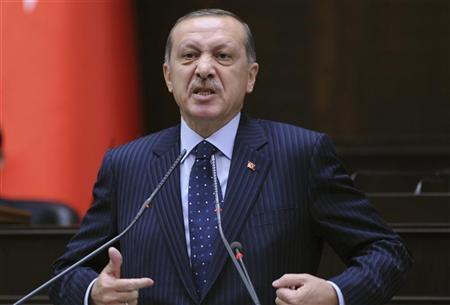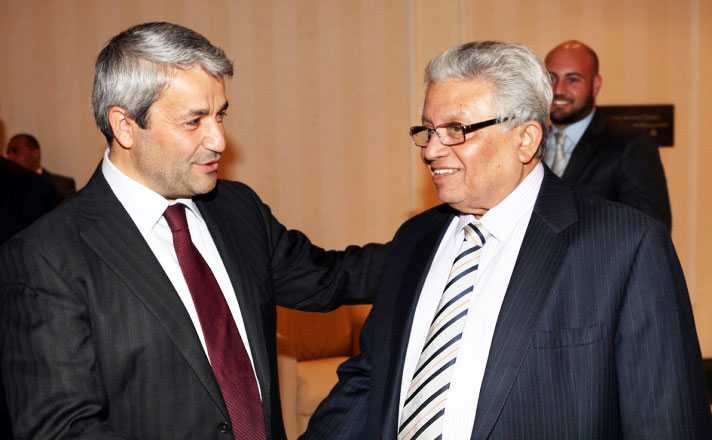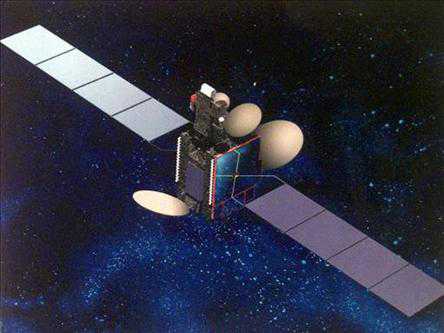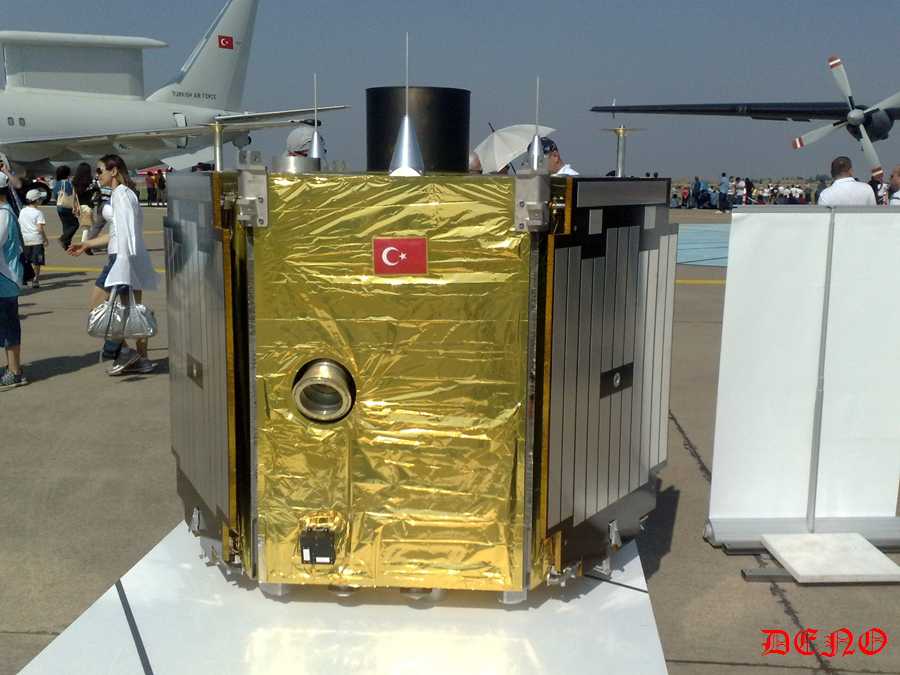By Simon Cameron-Moore
ISTANBUL | Mon Dec 12, 2011 5:51am EST

(Reuters) – There was a time when candidates to the Turkish Academy of Sciences needed above all the respect and acceptance of their peers, but these days the government can largely choose who gets in.
The change, according to some academics, is symptomatic of Prime Minister Tayyip Erdogan’s move toward an increasingly centralized form of government as he settles into a third term in office after the AK Party’s easy election victory in June.
“What we are observing is the AK Party is becoming a lot more centralized,” Fuat Keyman, the Director of Istanbul Policy Center told Reuters, as he mulled the state of Turkey’s democracy while stuck in one of the city’s tortuous traffic jams. “What is happening in the Turkish Academy of Sciences is one of side of it.”
This month, scientists who did not want to belong to an academic institution whose members were mostly selected by government functionaries set up their own independent academy.
Astro physicist Ali Alpar was among them.
“My personal opinion is that a feature of a genuine democracy is that public institutions funded by the state should have freedom to take decisions in their area of expertise,” Professor Alpar, told Reuters, at a cafe after a day of classes at Istanbul’s Sabanci University.
“Who is the bureaucrat or the politician who is going to read a physicist’s or philosopher’s papers and make judgment?” he asked, sipping tea from a traditional tulip-shaped glass.
The government’s decision, made through a decree that appeared in the Official Gazette when most Turks were enjoying the Muslim Eid al Fitr holiday in late August and reinforced by a second decree in November, caused uproar in academic circles.
Half of the 138 members of the prestigious academy, known by its acronym TUBA, have quit in protest.
Foreign academies wrote to Erdogan and President Abdullah Gul voicing grave misgivings over the state’s intrusion into the world of academic science.
Lars Walloe, President of the London-based Academia Europaea, wrote to Erdogan on October 14, urging a rethink with the warning:
“Unfortunately, the recent legal changes especially those allowing the introduction of new members and the appointment of the president of the Academy by the government will affect the reputation of TUBA … and will inevitably mean that it is no longer recognized by the international community as Turkey’s national academy of science and letters.”
FAST AND EFFICIENT
The government’s aim in taking control of the Turkish Academy of Sciences (TUBA) is to invigorate an organization that was not seen doing enough to promote science and technology for a booming economy that needs to move to a new level to sustain high levels of growth.
The argument for efficient, effective government resonates with people who are enjoying more prosperity that they have had before.
The academy had its faults. Even members admit it was not active enough, and was slow admitting new members.
The rejection of some candidates fed perceptions that a conservative secular clique played a deciding role, blocking the entry of scientists whose religious faith was viewed positively within the AK Party.
Alpar says the idea that anything other than scientific merit had played a role in the selection of TUBA members is invalid.
Instead, he saw a greater danger of TUBA being filled with scientists seeking favor with political masters for professional advancement.
“The people this or any government will appoint to an academy would be associated or particularly recommended to the government and that can be on political, ideological, religious or whatever grounds,” Alpar said.
“But to be there in a real sense, being a member of a respectable academy, means the person has to be evaluated on their scientific merit. And this is what they are glossing over, they are trying to make appointments.”
TUBA now falls firmly within the ambit of the newly-formed Ministry of Science, Technology and Industry.
Reuters e-mailed questions to Minister Nihat Ergin, and telephoned the ministry several times, but the minister sent regrets that he was too busy to respond, while officials declined to comment.
But Faruk Logoglu, a senior lawmaker in the main secularist opposition People’s republican Party CHP, did not mince words about the party formed in 2002 and drawing support from religious conservatives as well as center-right elements and nationalists.
“This was a continuation of a systematic attack on the posts of our secular society by the AK Party,” Logolu said. “Knowledge is one of the most powerful ingredients of a secular society. Even communist societies don’t do this.”
More Turks worry about diminishing plurality in Turkey than the specter of a threat to the secular state.
WATCHDOGS TOO
Turks applauded as Erdogan tamed the military, and changed judges and prosecutors to protect the country from a recurrence of the coups that punctuated the second half of the 20th Century.
But there is a worry, particularly with the judiciary’s perceived loss of independence, that checks and balances are being eroded.
TUBA’s fate is part of a bigger picture.
Prior to the election, legislation was announced that enabled the government to issue decrees for six months that bypassed parliament, bridging a summer recess and the transition from the outgoing assembly to the new one.
Using this window, government ministries assumed greater influence over several economic regulatory agencies, including ones covering banking, capital markets, energy, broadcasting, and tobacco and alcohol.
Erdogan and Deputy Prime Minister Ali Babacan, the minister overseeing the economy, said during the election campaign that the government intended to have more influence over such bodies.
In an address to a business forum last May, Erdogan gave telling insight into his thinking.
“Do you know the logic of independent bodies? If they succeed it is theirs, if not, it is the politicians’ fault. They are all the same from A to Z. Why do we have to pay the price for this?” he said.
“Does the electorate care if independent bodies are beneficial or not … The price of fuel is determined on the market, but do the people know that? No matter how hard you try to explain to them, they say ‘The government hiked prices’.”
Given, the government’s success in economic management over the past decade, these moves passed without causing any great stir.
Keyman, a leading Turkish political scientist, saw all the changes as manifestations of the AK government’s switch to greater centralization, and evidence of a “democratic recession” in Turkey.
“There is a disconnect between democracy and centralization in Turkey,” he concluded gloomily, still stuck in traffic.
(Editing by Ralph Boulton)




